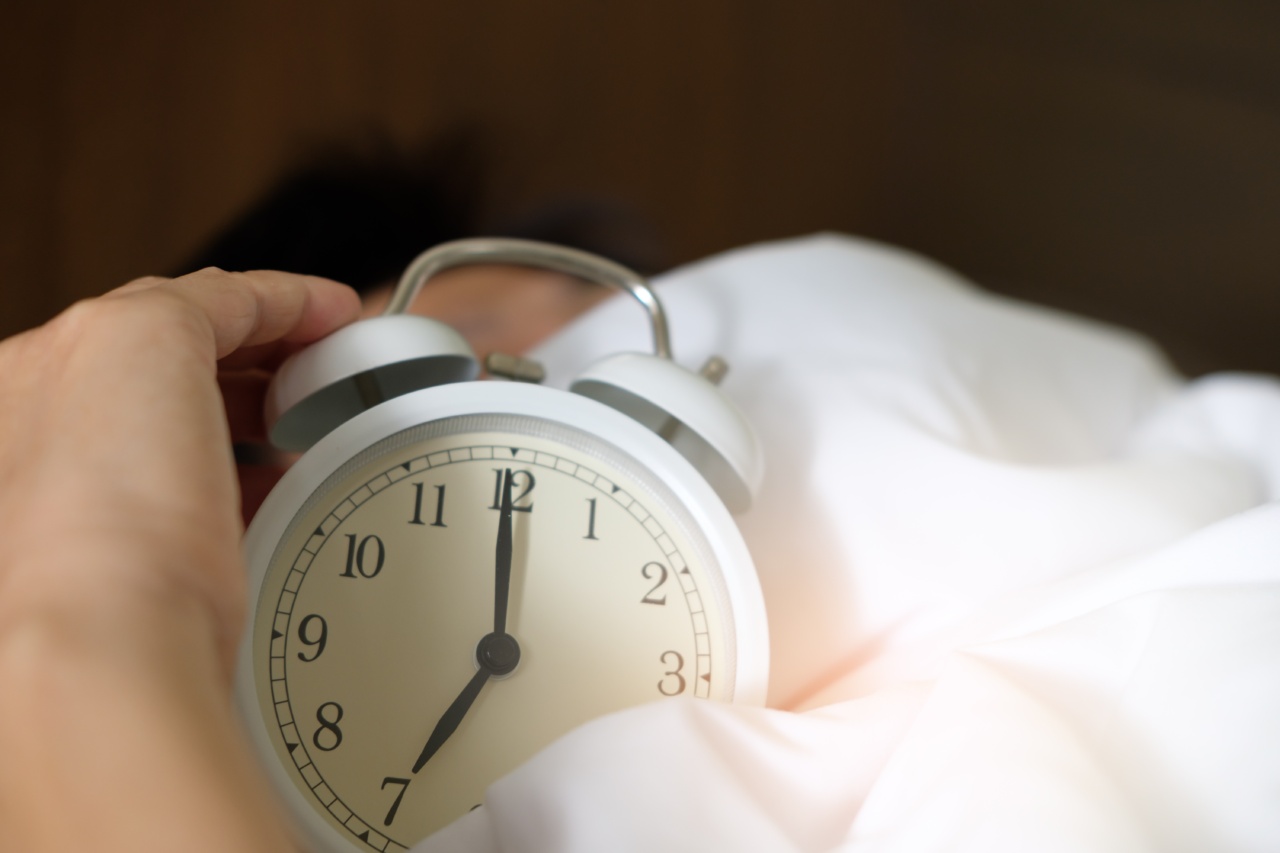Many people struggle with waking up early in the morning. The sound of the alarm clock disrupting your peaceful sleep can be quite unpleasant.
However, there may be a solution to help you wake up later and feel refreshed – a simple drink before bed.
The importance of quality sleep
Sleep is essential for our overall health and well-being. It is during sleep that our body repairs and revitalizes itself.
Lack of quality sleep can lead to various health issues such as fatigue, irritability, difficulty concentrating, and even increased risk of chronic diseases.
While the recommended amount of sleep may vary from person to person, most adults require around 7-9 hours of sleep every night. However, due to hectic lifestyles and busy schedules, many people find it challenging to get enough sleep.
The role of pre-sleep routine
Establishing a pre-sleep routine can greatly improve the quality of your sleep. This routine should include activities that help your mind and body prepare for rest and relaxation. One such activity is drinking a special bedtime beverage.
The power of a bedtime drink
A bedtime drink can be a fantastic way to unwind and set the stage for a restful night’s sleep. However, choosing the right ingredients is crucial.
Certain beverages can actually disrupt your sleep or even lead to bathroom breaks during the night, which can further disrupt your sleep pattern.
Instead, go for a soothing and natural herbal tea that promotes relaxation and sleep. Chamomile tea, for example, is known for its sleep-inducing properties.
It contains an antioxidant called apigenin, which can bind to certain receptors in the brain, calming the central nervous system.
H2: Incorporating sleep-enhancing ingredients
In addition to chamomile tea, you can enhance the sleep-inducing effects of your bedtime beverage by incorporating other beneficial ingredients:.
1. Lavender
Lavender is well-known for its calming and sedative properties. Adding a few drops of lavender essential oil or using lavender tea can help promote relaxation and better sleep quality.
2. Valerian root
Valerian root has been used for centuries as a natural remedy for insomnia. It works by increasing levels of a neurotransmitter called GABA, which helps calm the nervous system.
3. Lemon balm
Lemon balm is a herb that is often used to reduce anxiety and promote sleep. It has a mild sedative effect, making it a great addition to your bedtime drink.
4. Passionflower
Passionflower is another herb that has been used traditionally to improve sleep quality. It can help reduce anxiety and induce a sense of calmness.
5. Magnesium
Magnesium plays a vital role in regulating sleep. Low levels of magnesium have been linked to poor sleep quality and insomnia. Adding a magnesium supplement or using magnesium-rich ingredients like pumpkin seeds can improve your sleep.
Creating your bedtime beverage
Now that you know the sleep-enhancing ingredients, you can create your own bedtime beverage by combining them. Here’s a simple recipe to get you started:.
Ingredients:
– 1 chamomile tea bag.
– 1 teaspoon dried lavender flowers.
– 1 teaspoon dried lemon balm.
– 1 teaspoon valerian root.
– Optional: a pinch of passionflower.
– Optional: a tablespoon of pumpkin seeds (if not using magnesium supplement).
– Honey or stevia (optional) for sweetness.
Instructions:
1. Boil a cup of water and add the chamomile tea bag, lavender flowers, lemon balm, and valerian root into a herbal tea infuser or a teapot.
2. Let the mixture steep for about 10-15 minutes.
3. Remove the tea bag and the infuser if used.
4. If using passionflower, add it to the tea and let it steep for an additional 5 minutes.
5. Strain the tea into a mug.
6. If not using a magnesium supplement, add pumpkin seeds to the mug.
7. Sweeten with honey or stevia if desired.
8. Drink the beverage around 30 minutes before bedtime.
Improving sleep hygiene
While a bedtime drink can certainly help you wake up later feeling refreshed, it’s important to establish good sleep hygiene practices. Here are some additional tips to improve the quality of your sleep:.
1. Create a sleep-friendly environment
Make sure your bedroom is dark, quiet, and at a comfortable temperature. Use blackout curtains or an eye mask to block out any unwanted light.
2. Stick to a consistent sleep schedule
Try to go to bed and wake up at the same time every day, even on weekends. This helps regulate your body’s internal clock and improves sleep quality.
3. Limit exposure to electronic devices
Avoid using electronic devices such as smartphones, tablets, or computers before bed. The blue light emitted by these devices can disrupt your sleep-wake cycle.
4. Avoid caffeine and heavy meals before bedtime
Both caffeine and heavy meals can interfere with your ability to fall asleep and stay asleep. Limit your caffeine intake and have a light dinner at least a few hours before bed.
5. Practice relaxation techniques
Engage in relaxation techniques such as deep breathing, meditation, or gentle stretching before bed. These activities can help calm your mind and prepare your body for sleep.
Wake up feeling refreshed
By incorporating a bedtime beverage with sleep-enhancing ingredients and following good sleep hygiene practices, you can improve the quality of your sleep and wake up feeling refreshed.
Remember to give yourself enough time to wind down before bed and establish a consistent routine to signal to your body that it’s time to sleep. Sweet dreams!.































